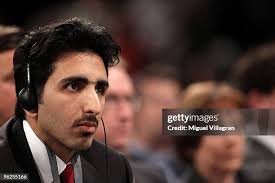Sheikh Jassim: A Pioneering Figure in Global Finance

Introduction
Sheikh Jassim bin Hamad Al Thani, a prominent Qatari figure, has increasingly gained recognition for his significant contributions to the finance and investment sectors. As the chairman of the Qatar Islamic Bank and a key player in numerous international investment ventures, Sheikh Jassim embodies a blend of tradition and modern financial acuity. His leadership style and strategic vision are particularly relevant amid the global economic shifts unfolding in 2023, making him a focal point of interest for investors and finance professionals alike.
Current Developments
In 2023, Sheikh Jassim has been in the news due to his ambitious plans to broaden Qatari investments across various sectors, such as technology, healthcare, and renewable energy. Recently, he announced an initiative to invest $3 billion in sustainable energy projects globally, partnering with leading firms to combat climate change while generating profitable returns. This proactive approach illustrates Sheikh Jassim’s vision to position Qatar not just as a financial hub, but also as a leader in the sustainability movement.
Moreover, under his leadership, the Qatar Islamic Bank reported a record profit margin in the first half of 2023, showcasing growth largely attributed to Sheikh Jassim’s strategic investments in diversified portfolios. Additionally, his strong emphasis on ethical finance practices is aligning with global trends favouring sustainability and corporate responsibility, attracting interest from socially-conscious investors.
Bridging Tradition with Innovation
Sheikh Jassim is not only adept in conventional finance but is also an advocate for leveraging technology to foster economic growth. He has proposed the integration of fintech solutions into traditional banking systems, aiming to modernise Qatari financial institutions and enhance customer experiences. His initiatives to promote digital banking solutions reflect a broader trend within the Middle East to embrace the digital revolution.
Further, Sheikh Jassim’s interest in blockchain technology has led to exploratory discussions on creating a fintech incubator within Qatar, aimed at nurturing local start-ups. This initiative hopes to establish Qatar as a hub of fintech innovation, enabling young entrepreneurs to contribute to the nation’s economy.
Conclusion
Sheikh Jassim bin Hamad Al Thani stands out as a transformative leader influencing both the finance sector and broader economic trends. His commitment to sustainable investments and innovative financial solutions is likely to shape the future landscape of finance in the Middle East and beyond. As he continues to navigate through the challenges of a changing global economy, his vision will undoubtedly resonate with many investors seeking direction in these uncertain times. For readers keen on understanding financial leadership in the modern era, following Sheikh Jassim’s journey offers valuable insights into balancing tradition with transformation.









